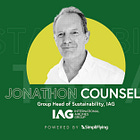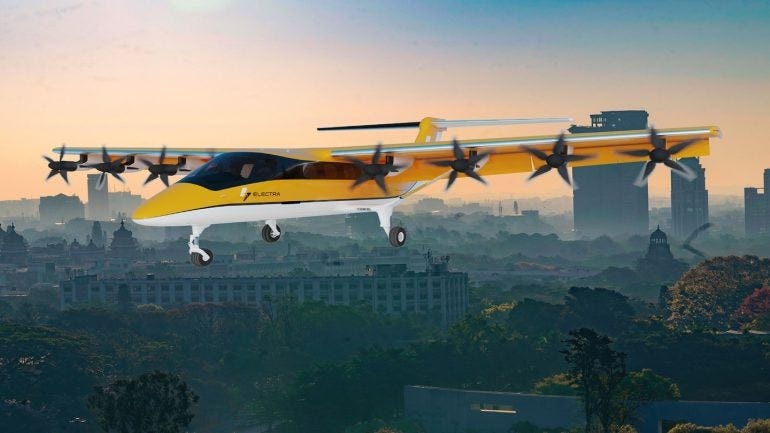#Sustainability20: Japan to look at hydrogen in new $33bn attempt for homegrown aircraft & more
Weekly round-up - 24/01/25
Each Friday, we publish a round-up of the 20 most important stories on sustainable aviation. You can see previous editions of #Sustainability20 here.
Industry Updates
Delta Air Lines remains committed to its 2050 net-zero emissions target despite the US withdrawal from the Paris Agreement, focusing on sustainable aviation fuel and improved aircraft efficiency to reduce emissions.
Donald Trump’s return to the White House risks over $300bn in federal infrastructure funding, halting Biden’s climate agenda and freezing loans for clean energy projects under the Inflation Reduction Act.
Sustainability took a backseat at this year’s Airline Economics conference, with airlines prioritising operational challenges over long-term climate goals, raising concerns about waning industry commitment to net-zero targets.
Direct Air Carbon Capture and synthetic fuels are emerging as key technologies to decarbonise aviation, with cost-effectiveness and renewable energy access critical to scaling sustainable aviation fuel production.
CLIMATE WATCH: How world has responded to Trump’s Paris climate agreement withdrawal - The Guardian
World leaders reaffirmed their commitment to the Paris Agreement after Trump withdrew the US, highlighting global determination to combat climate change despite the setback to international climate diplomacy.
Infrastructure and Operational Efficiencies
New Terminal One at JFK Airport will introduce a shared, all-electric ground support equipment fleet by 2026, marking a significant step in reducing emissions and improving operational efficiency.
Rome Fiumicino Airport inaugurated a 22MWp solar farm, the largest self-consumption photovoltaic system at a European airport, as part of its €200m investment in renewable energy and sustainability.
Sustainable Aviation Fuel (SAF)
IAG, owner of British Airways, invested in Wastefront’s pyrolysis project to produce SAF from recycled tyres, aligning with the UK’s SAF mandate for cleaner aviation fuels.
Metafuels raised $9m in funding to scale its SAF technology, with plans to produce 12,000 litres of e-SAF daily in Denmark.
Boeing partnered with Norsk e-Fuel to develop Europe’s first industrial-scale power-to-liquid facility, producing e-SAF that could reduce aviation emissions by over 90%.
Heathrow increased its SAF incentive fund to £86m, aiming for 3% SAF usage by 2025 while advancing its sustainability strategy and nature-positive initiatives.
USA BioEnergy acquired land in Texas for a $2.8bn biorefinery to produce SAF from wood waste, supported by a 20-year offtake agreement with Southwest Airlines.
Enilive launched its first SAF plant at the Gela biorefinery in Sicily, Italy, with a capacity of 400,000t – meeting nearly a third of Europe’s 2025 SAF demand.
OMV and Airbus signed an MoU to advance aviation decarbonisation by expanding SAF access, driving demand, and supporting investment in new SAF production facilities.
Truckee Tahoe Airport District is advancing sustainable aviation with exclusive SAF use, electric vehicle fleets, and land preservation, aiming for net-zero operations ahead of industry targets.
New technology: Electric and Hydrogen
Japan announced a $33bn project to develop a hydrogen-powered aircraft by 2035, involving local and foreign manufacturers to strengthen supply chains and compete in the global aviation market.
Electra partnered with Hunch Mobility to expand regional air travel in India using hybrid-electric aircraft, offering cleaner, quieter, and faster transportation options in congested markets.
EHang conducted demonstration flights in Shanghai with its autonomous EH215-S eVTOL aircraft, advancing China’s low-altitude economy initiatives and urban air mobility plans.
Australia and New Zealand are testing zero-emission aircraft prototypes, including battery-electric and hydrogen-electric models, to decarbonise short-distance aviation routes by 2025.
H55 and Aerovolt UK partnered to build electric aircraft charging infrastructure and launch fully electric pilot training programs.
Stralis and CQUniversity are developing a hydrogen-electric aircraft, aiming to demonstrate decarbonised aviation with a test flight from Gladstone to Brisbane in 2025.
For January 2025, we’re pleased to feature 4AIR as our exclusive Sponsor of the Month. 4AIR is leading the way with the industry’s first framework to address aviation’s climate impact – offering clear, verifiable pathways to reduce and counteract emissions. Discover their services, including compliance monitoring and The Assure SAF Registry, to advance your sustainability efforts.







